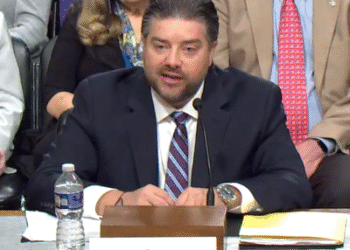Contractors who sell to the federal government have certain rights to recoup costs incurred due to the federal shutdown. However, there is hesitancy among contractors about exercising these rights. David Dixon, an attorney at Pillsbury Winthrop Shaw Pittman, noted during a DC Disrupted webinar series that following the government’s actions to significantly cut down USAID and other agencies, contractors are apprehensive about facing potential retaliation for simply requesting reimbursement for their shutdown-related costs.
Dixon explained that the processes for recovering costs are well-established, including administrative means such as “requests for equitable adjustment.” This process allows contractors to seek compensation when delays or changes from the government impact their costs or timelines. He emphasized that requesting an equitable adjustment should be routine and shouldn’t incite retaliation.
However, contractors currently grapple with the constraints of the Anti-Deficiency Act, which prohibits agencies from spending unallocated funds. This hindrance means that agency contracting officers cannot award new contracts, modify existing ones, or exercise contract options. Dixon cited an example of a company that, right before the shutdown, had completed work for a Federal Supply Schedule renewal and was engaged in negotiations for large orders. The shutdown’s onset prevented the contracting officer from exercising the contract option, leading to its expiration and impacting the awarding of necessary orders. This puts contractors in a tough position regarding their workforce management amid uncertain contract statuses.
The mounting losses contractors face can manifest financially in various ways, including idle labor costs, storage expenses for undeliverable products, engineering delays, and the risk of contract termination due to missed deadlines. Although there are mechanisms in place for recovering costs, the current atmosphere—shaped significantly by the Trump administration—creates a climate of fear. Craig Saperstein, another Pillsbury attorney, indicated that there was an intention among administration officials to apply pressure on specific Democratic constituencies by cutting funding, particularly on grants.
Despite the current climate, Dixon urged contractors not to relinquish their rights. He outlined three critical steps contractors should consider:
1. **Understand your contracts:** Review all clauses related to suspension of work, stop work orders, delays, and changes, ensuring that the contract staff is well-informed.
2. **Document everything:** Keep thorough records detailing what was expected from the government, any failures, and the resulting effects. This should include accounting for costs that need to be recovered.
3. **Consider timing strategically:** Contractors must notify contracting officers within 30 days of needing to request an equitable adjustment. Additionally, the Contract Disputes Act permits contractors to submit claims for up to six years from the date they accrue. Dixon reassured contractors that while they should act expediently out of fear of uncertainty, it may also be prudent to wait for optimal timing if necessary.
In the face of such uncertainty within the current political landscape, it is crucial for contractors to maintain awareness of their rights and the processes available for recouping costs.












